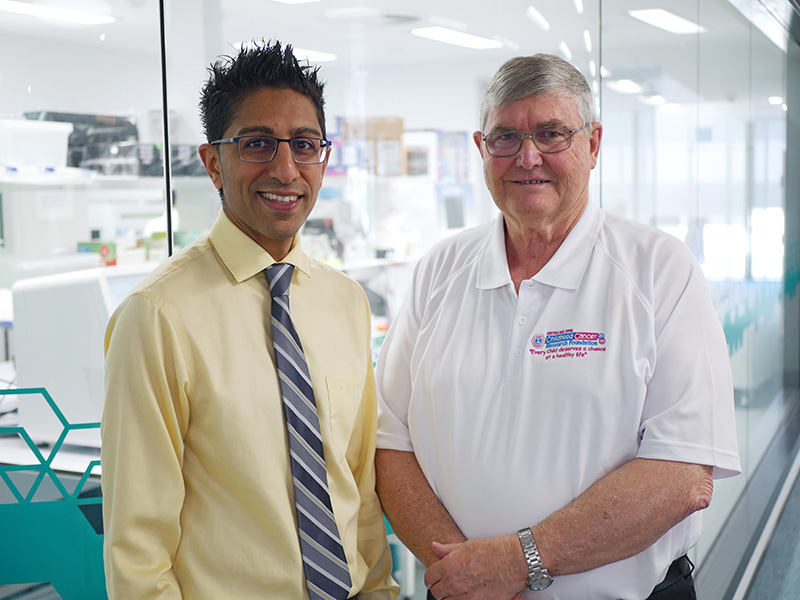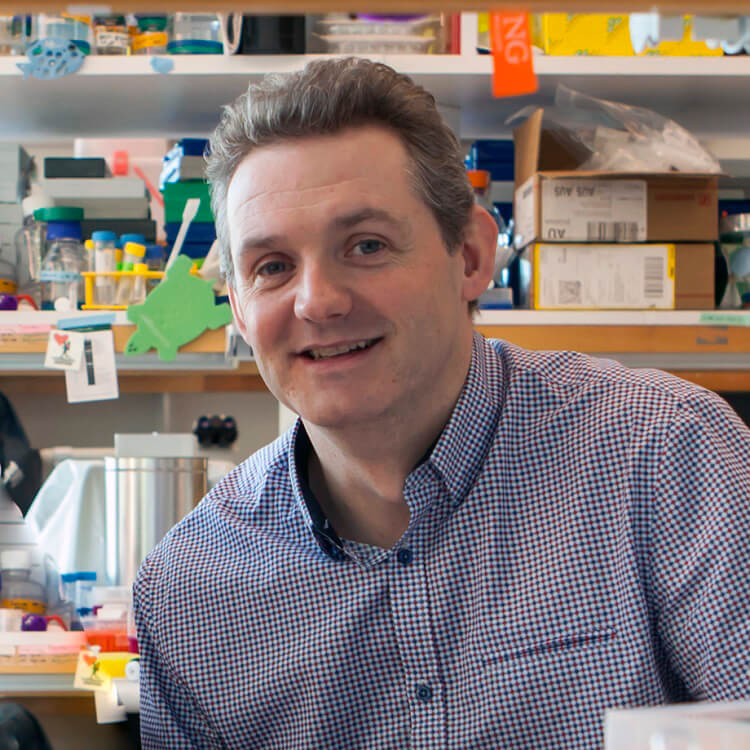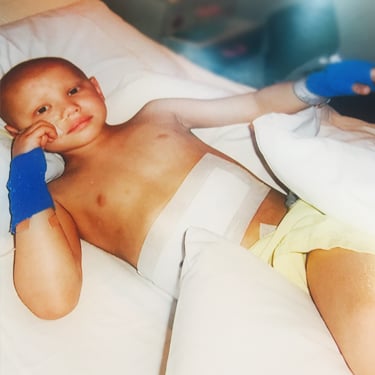Search
Research
Grandparents’ Experiences of Childhood Cancer: A Qualitative StudyA child's cancer diagnosis has a significant impact on the lives of grandparents. Grandparents experience the stress of worrying about both their adult children and their grandchildren. Our study aimed to explore the lived experience of grandparents of children diagnosed with cancer.
Research
Nonchromosomal birth defects and risk of childhood acute leukemia: An assessment in 15 000 leukemia cases and 46 000 controls from the Childhood Cancer and Leukemia International ConsortiumAlthough recent studies have demonstrated associations between nonchromosomal birth defects and several pediatric cancers, less is known about their role on childhood leukemia susceptibility. Using data from the Childhood Cancer and Leukemia International Consortium, we evaluated associations between nonchromosomal birth defects and childhood leukemia.
Research
Characterization of mesenchymal stem cells in pre-B acute lymphoblastic leukemiaComponents of the bone marrow microenvironment (BMM) have been shown to mediate the way in which leukemia develops, progresses and responds to treatment. Increasing evidence shows that leukemic cells hijack the BMM, altering its functioning and establishing leukemia-supportive interactions with stromal and immune cells.
Research
Australian and New Zealand consensus guideline for paediatric newly diagnosed immune thrombocytopaenia endorsed by Australian New Zealand Children's Haematology and Oncology GroupIn children, the majority of cases are self-limiting and thus many paediatric patients can be managed conservatively with minimal complications. This varies considerably compared to adult newly diagnosed immune thrombocytopaenia (NDITP) where, in most cases, thrombocytopaenia persists with higher risk of moderate to severe bleeding complications.
Research
Lessons learnt from influenza vaccination in immunocompromised children undergoing treatment for cancerInfluenza infection contributes substantially to global morbidity and mortality, with children undergoing treatment for cancer among the most vulnerable due to immunosuppression associated with disease and treatment. However, influenza remains one of the most common vaccine-preventable diseases.

News & Events
Childhood cancer research is getting a $1.05 million boost thanks to Australian Lions Childhood Cancer Research FoundationAustralian Lions Childhood Cancer Research Foundation has announced it will provide $1.05 million of funding to The Kids Research Institute Australia.

News & Events
Associate Professor Nick Gottardo awarded Cure Brain Cancer Foundation Innovation Grant 2017The Kids cancer researcher & clinician Dr Nick Gottardo has been announced as the recipient of an Innovation Grant from the Cure Brain Cancer Foundation.

News & Events
Childhood cancer story: How Rennae's child's cancer diagnosis affected her familyRennae's son Samuel was diagnosed with stage 4 neuroblastoma 13 years ago, and was originally given a 20% chance of survival. She bravely shares their story.
Research
Characteristics of TCR Repertoire Associated With Successful Immune Checkpoint Therapy ResponsesImmunotherapies have revolutionized cancer treatment. In particular, immune checkpoint therapy (ICT) leads to durable responses in some patients with some cancers. However, the majority of treated patients do not respond. Understanding immune mechanisms that underlie responsiveness to ICT will help identify predictive biomarkers of response and develop treatments to convert non-responding patients to responding ones. ICT primarily acts at the level of adaptive immunity. The specificity of adaptive immune cells, such as T and B cells, is determined by antigen-specific receptors.
Research
Durvalumab with first-line chemotherapy in previously untreated malignant pleural mesothelioma (DREAM): a multicentre, single-arm, phase 2 trial with a safety run-inThere is a strong unmet need to improve systemic therapy in mesothelioma. Chemotherapy with cisplatin and pemetrexed improves survival in malignant pleural mesothelioma, and immune checkpoint inhibitors are an emerging treatment in this disease. We aimed to evaluate the activity of durvalumab, an anti-PD-L1 antibody, given during and after first-line chemotherapy with cisplatin and pemetrexed in patients with advanced malignant pleural mesothelioma.
